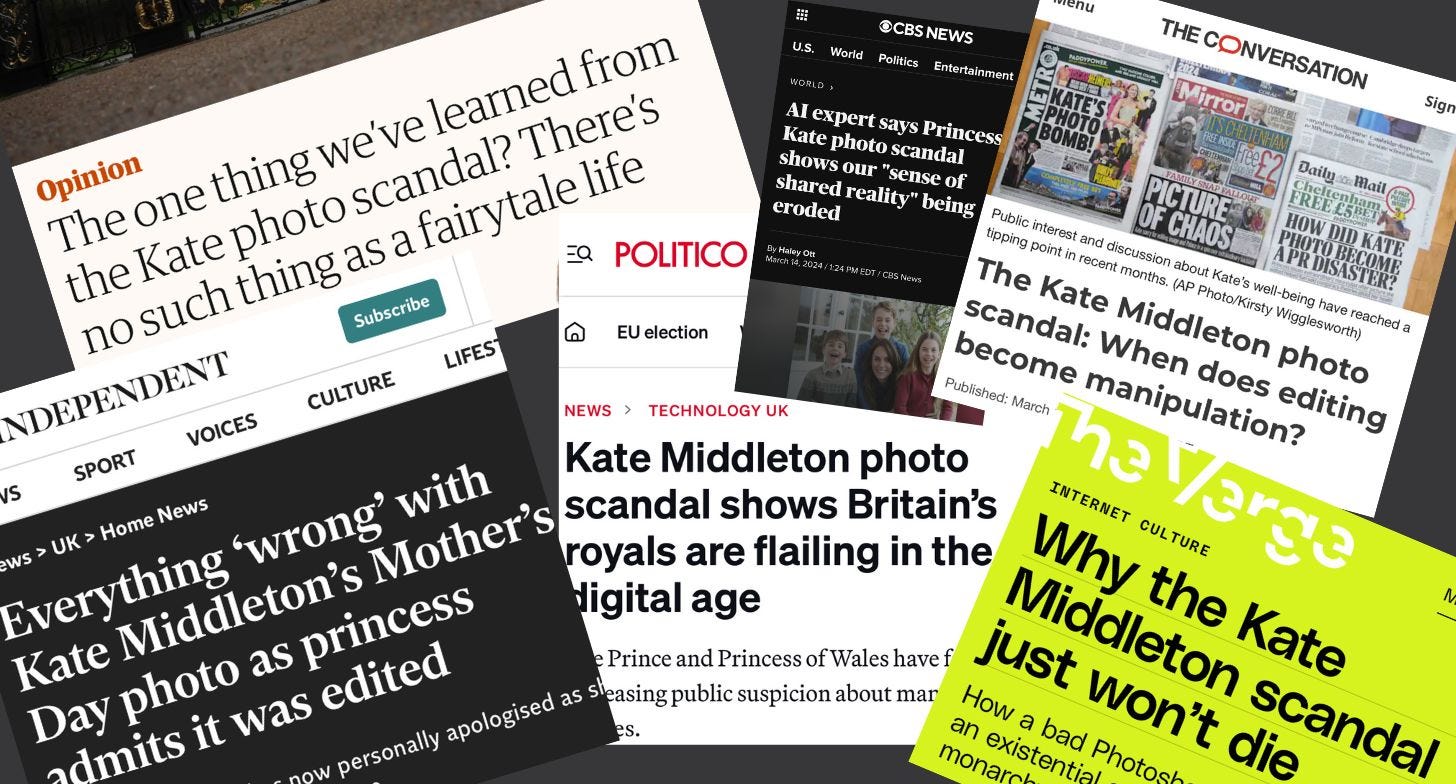Can storytellers learn anything from the Princess of Wales’s Mother’s Day photo debacle?
A picture scandal is worth a thousand words
EDIT: Since I wrote this, the Princess of Wales has released a heart-wrenching video sharing her cancer diagnosis. This article aims to add dialogue around various aspects of popular culture and creativity, and has therefore been left unaltered to reflect the moment we were in when it was written.
For a couple of days last week, everyone seemed to be ta…


